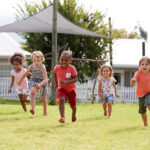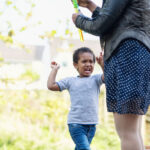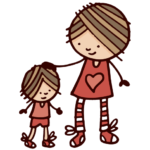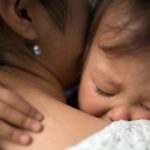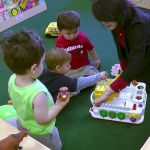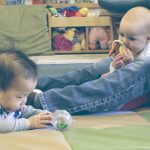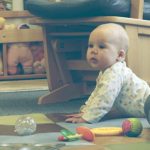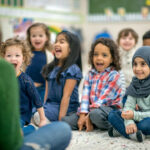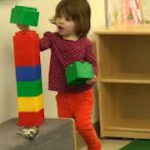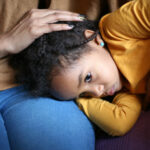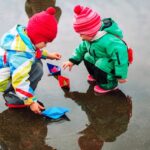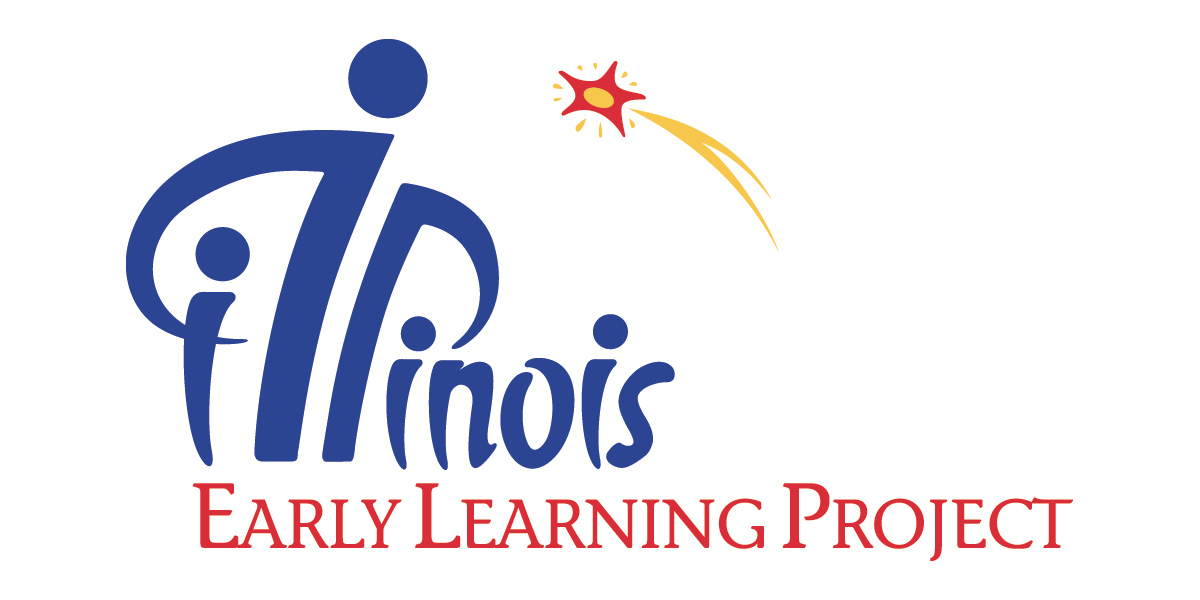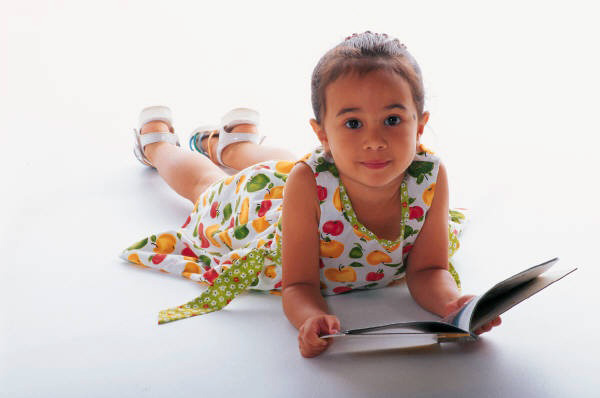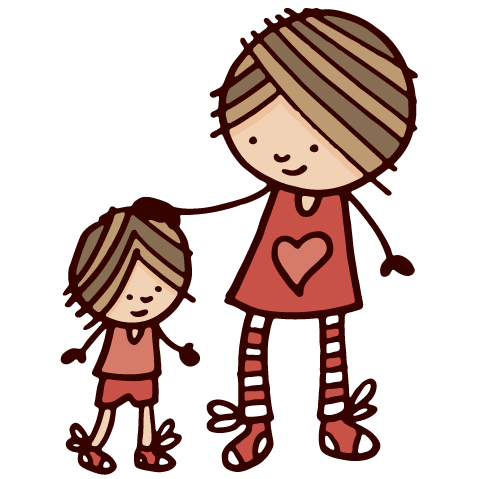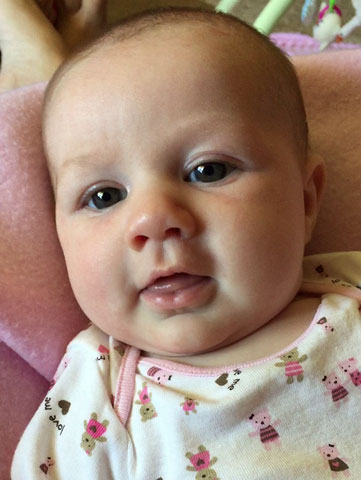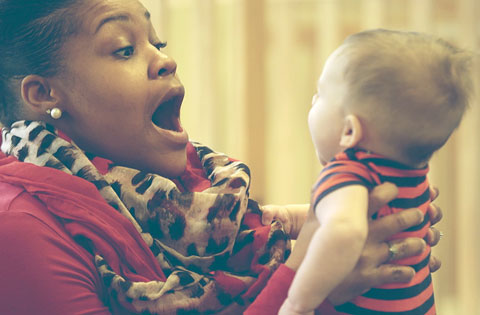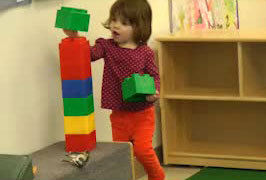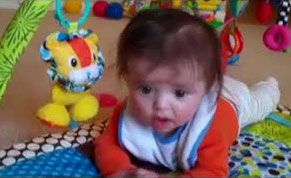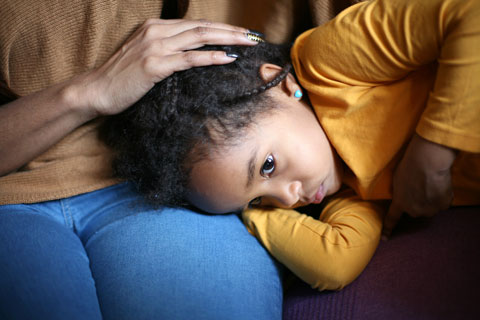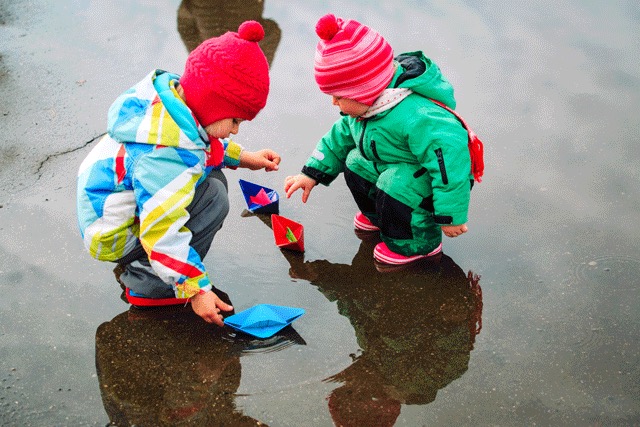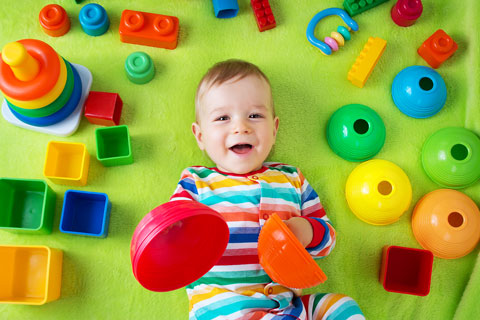Keyword: Child Development
-

Vision Development
These resources provide information about vision development in young children.
-
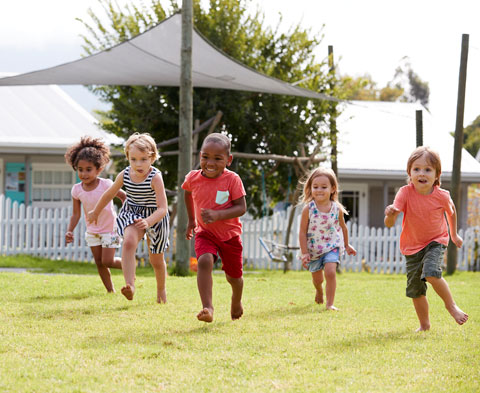
Child Development
Child development is how a child learns, grows, and develops as they get older. This toolkit gives parents and teachers information about child development milestones, parent monitoring, concerns about development, and next steps to take if there is a concern.
-
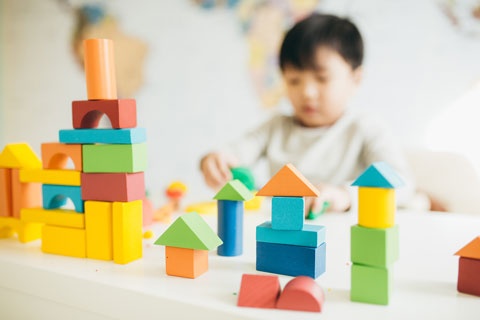
What Is Autism?
trum disorder (ASD) is a developmental disability that can cause social, communication, and behavioral challenges. This “Questions and Answers” will answer some common questions about autism in young children.
-
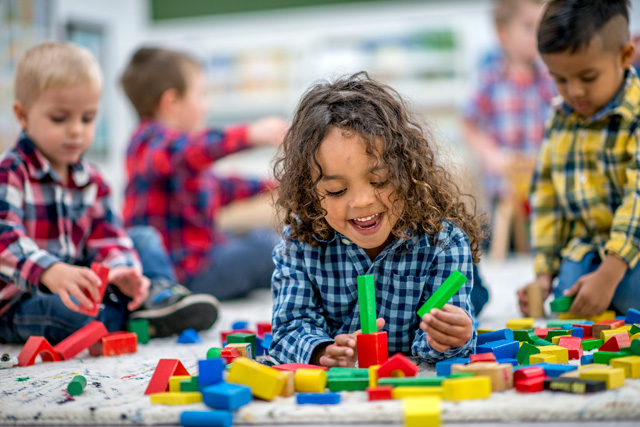
Developmentally Appropriate Practice 101
Developmentally appropriate practice (DAP) was developed in the 1980s to give early childhood educators a framework of high-quality and appropriate teaching practices for young children. DAP are learning experiences that promote the development (social, emotional, physical, health, cognitive) and general learning of each child served. NAEYC’s 2020 Developmentally Appropriate Practice Position Statement gives educators guidelines…
-
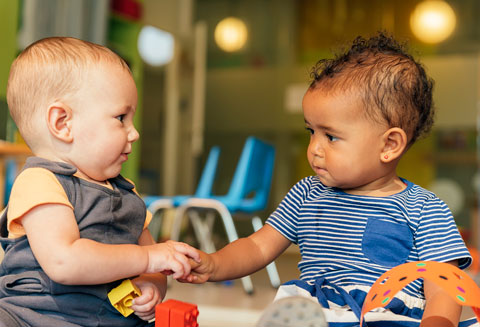
Early Intervention: Resources for Families, Childcare, and Early Childhood Teachers
When a very young child shows delays in development, there are services in Illinois to support the child and their family. Early Intervention (EI) services focus on infants and toddlers with disabilities and delays, birth through age three, and their families.
-
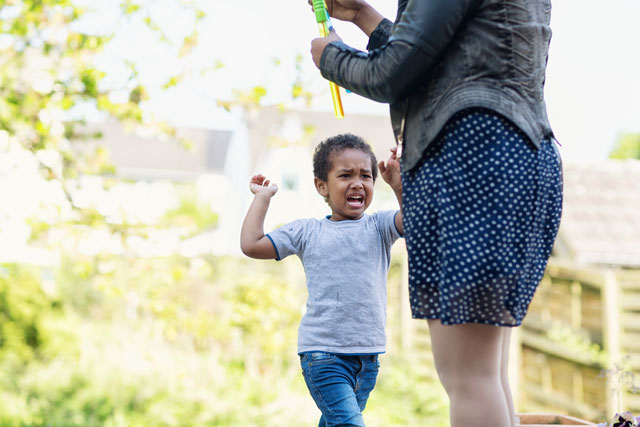
Challenging Behaviors in Young Children
This toolkit includes information on child development, the meaning of behavior, strategies adults can use with young children, and additional resources for families and educators.
-

The Impact of Trauma on the Lives of Young Children (Part 2)
On this podcast we are joined by Dr. Deserai Miller.
-
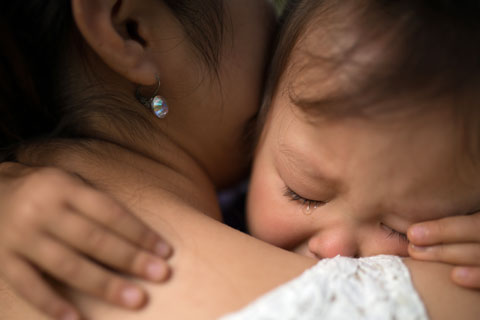
The Impact of Trauma on the Lives of Young Children (Part 1)
In this podcast we interview Dr. Catherine Corr from the University of Illinois at Urbana-Champaign.
-
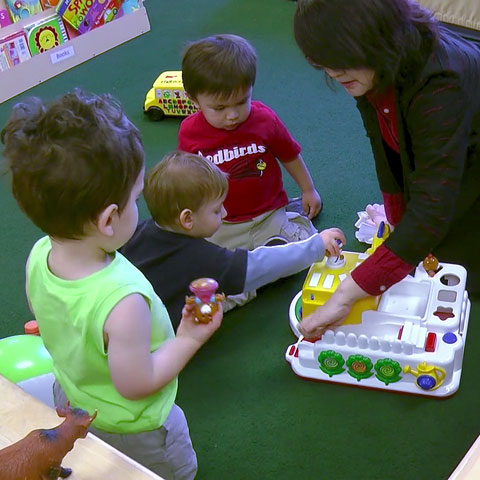
Self-Regulation: Foundation of Development
This Early Learning Moment provides an over view of the Self-Regulation: Foundation of Development section in the Illinois Early Learning Guidelines for Children Birth to Age 3.
-
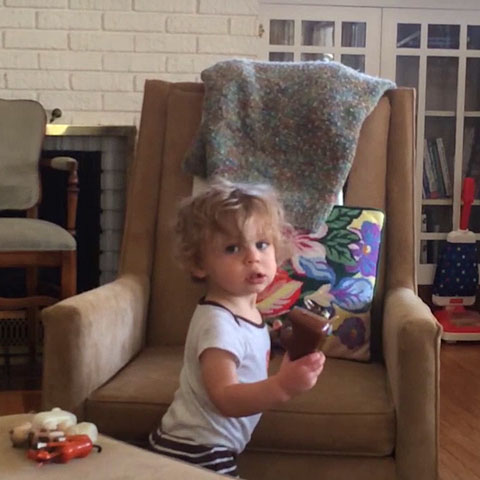
Rounding Up the Cows
Young children develop skills across domains as they grow. Sometimes, a new skill in one area allows them to make gains in another area. In this video, we see Aaron as he stumbles from the bench to the ottoman to transfer his toys from one area to another.
-
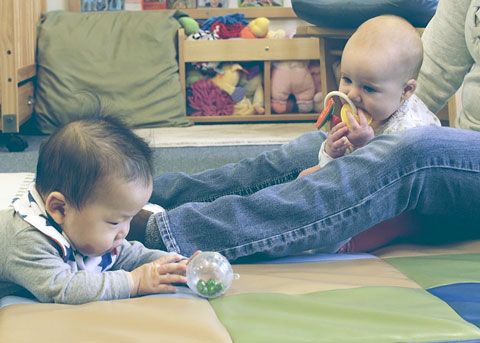
Cognitive Development
This section of the guidelines describes how infants and toddlers learn to think and reason. As they develop cognitive skills, they build understanding about the world around them. Their memory skills, spatial skills, and reasoning skills increase.
-
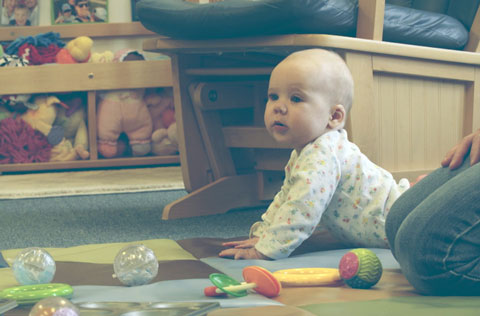
Physical Development and Health
This section of guidelines describes how infants and toddlers learn to move their bodies, take in their world through their senses, and carry out self-care routines. This section also explains how physical skills progress through development as young children’s bodies grow stronger and more able to move purposefully and with ease during everyday play and…
-
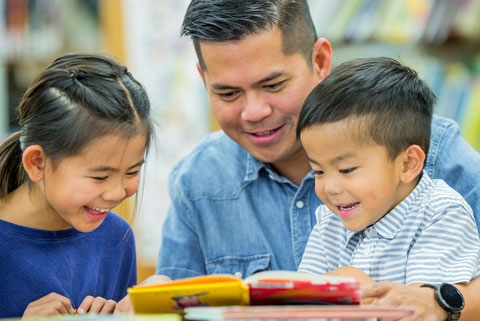
Preventing That Summer Slide
Increasing young DLLs’ language skills and vocabulary in their heritage language is important for learning future academic skills.
-
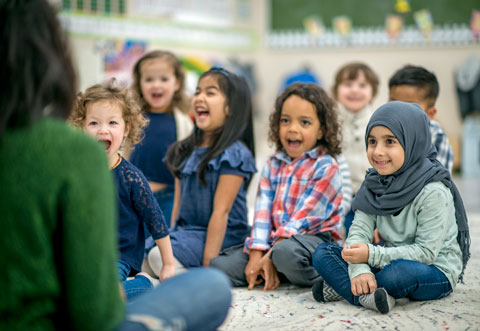
Adjusting Pace and Location of Project Work
By adjusting the pace and location of the project work to the developmental levels and experience of the children, teachers can begin to engage them in project work soon after they join the class, even at the beginning of the school year.
-

Young Children’s Mental Health
This list contains a variety of resources associated with the mental health of young children.
-

Children’s Play – More than Fun and Games
This list contains a variety of resources which can aid teachers, parents, and caregiver in providing a diverse selection of play options for children which promote skill development.
-
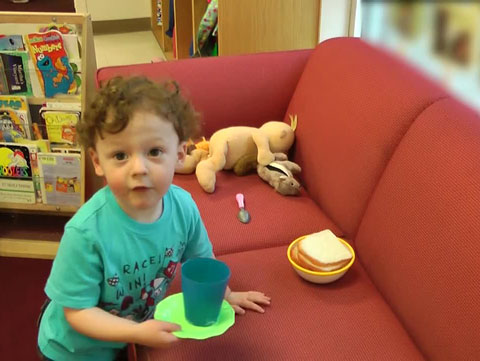
Tea Party
Through a progression of short clips taken over a span of 30 minutes, this video focuses on Hudson (at 30 months, the oldest in the class) gathering items, stuffed animals, and dolls; arranging them on a couch; and (briefly) enjoying his tea party with his stuffed animals.
-

Ease Those First-Day Blues!
These strategies can help teachers and caregivers make it easier for children and parents to get through those first-day blues.
-
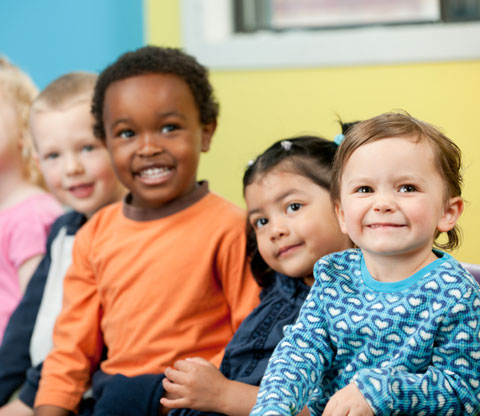
Developmental Milestones, Infant Toddler Guidelines, and Early Learning Standards: Metrics for Young Children
Teachers and parents of young children are likely to encounter different checklists or guidelines to assess the development, knowledge, or skills of the young children in their care.
-

What Is Developmental Screening?
The first step in gathering information about a child is to complete a developmental screening.
-

Freedom to Grow
Parents want to help their children and keep them safe, but too much help can result in a child unable to spread his wings and fly.

